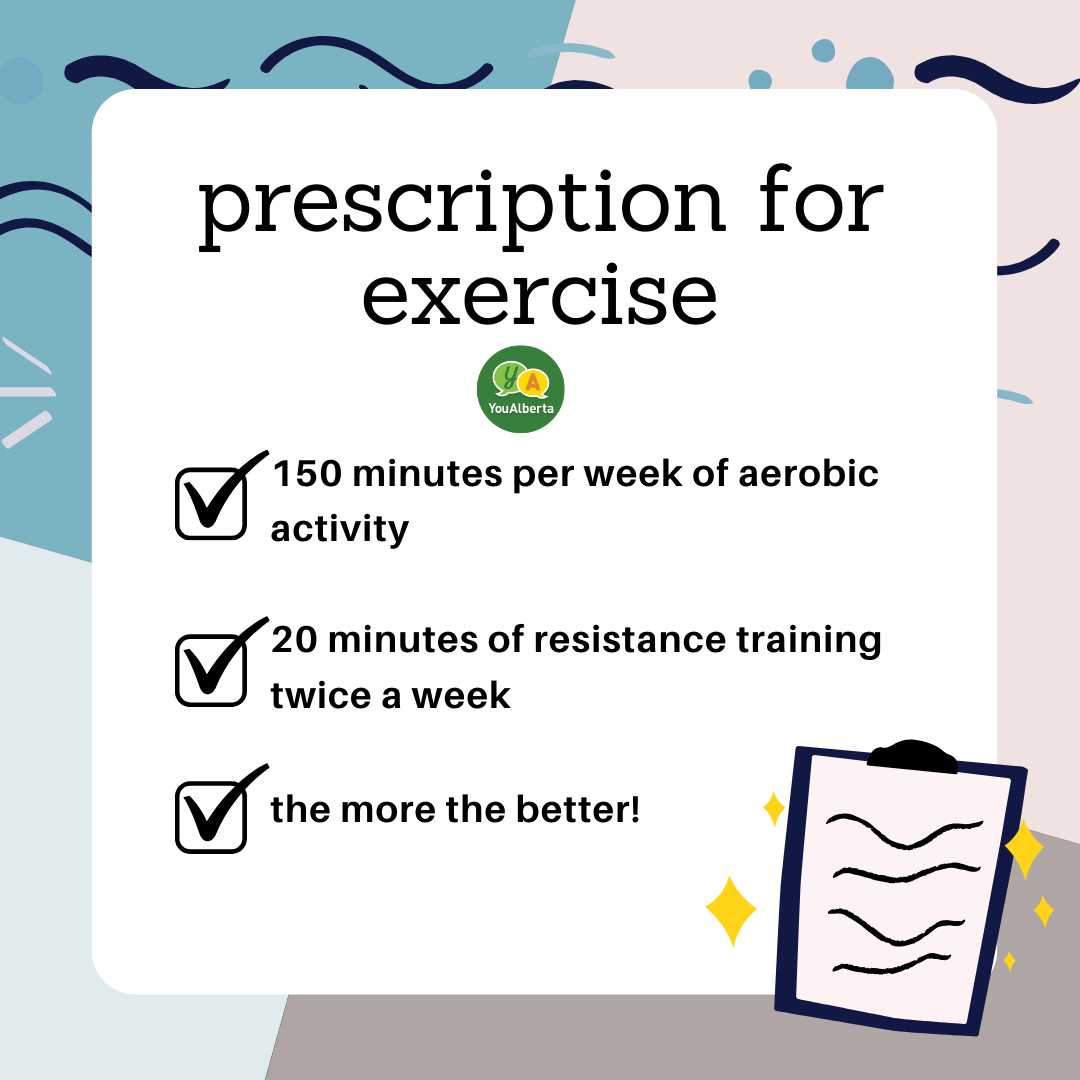
As a future health care professional, I am fascinated by the very real positive health impacts exercise can have on people's health. Most of us are aware that exercise is important, but other than potential weight loss the benefits of exercise seem very abstract and almost irrelevant to us when we're young. But being active is about a bigger picture. I always compare active living to studying hard: we are studying and working hard so that we will have a better, different life. There's potential for that same future payoff with our health, and therefore our quality of life, when exercise is a regular component of your life. Exercise also provides us with support as we navigate through challenges of school by allowing for better focus, mental health, and self-esteem. It makes sense that we should be investing in our health just as much as we do in other areas of our life.
It's that time of the year where winter blues are a serious struggle. The gloomy, frigid, and short days can lead to a serious lack of motivation and energy. As students, it's extra hard as our schedules might require us to be at school before sunrise and we may leave school after sunset. This slump is also known as Seasonal Affective Disorder (SAD). When we are experiencing a winter slump, exercise can improve our happiness by triggering our brain to release "happy," feel-good chemicals, helping us to feel well rested through a better sleep, and boosting our immune system while reducing our chance of colds. These benefits extend outside of the winter months but are especially important during the fall and winter seasons.
For more ways to cope with SAD check out Sandy's post
We all want to know the secret to not procrastinating and getting better grades. Ever find yourself distracted while studying, zoning out during lectures, or completely blanking on exams? Well, exercise has been proven to help with all of that. Aerobic activity can improve our concentration and enable us to resist distractions. Regular exercise can also improve memory and positively effect information retention and recall. As students, these effects are especially important as we have lots to study and many challenging exams.
Last summer, I worked at a long-term care home and I absolutely loved it. So for one of the final courses of my degree, I took Sociology of Aging (SOC 375). I loved the course and many topics interested me, but what really got me was the chapter focusing on health in older adults and how imperative active living was to an individual's health. The other aspect of the course that really made me think was the clear associations between health behaviors and lifestyle choices we make when we are younger and the direct effects that has on our future health. Regular exercise decreases the incidence of elevated blood pressure, heart disease, and cardiovascular events such as a stroke. It also influences blood sugar regulation and improves the sensitivity of insulin. Another disease that pops up as we age is osteoporosis and resistance exercises helps reduce the incidence and severity through strengthening the bones. Aging is inevitable, but the sooner your start being consistently active there will be a greater impact on your health in the future and likely a lowered incidence and/or severity of cardiovascular diseases.
A lot of people think that dementia (most commonly Alzheimer's) is a natural part of aging. It is not natural aging; it is a disease that is more common in older adults. It is also a progressive disease without a cure which makes the role of exercise in brain health extremely important. Exercise affects our cardiovascular health which in turn indirectly affects our brain health as cardiovascular events such as a stroke can affect our brain and lead to dementia. Physical activity can also directly be neuroprotective, which is basically just a fancy way of saying that by exercising regularly we are strengthening and protecting our brain. These effects are over and above improving our mental health and allowing us to study better as these are long-term beneficial effects on our future cognition. If you find this interesting, you can read more about the connection between physical activity and the brain here.
According to the Canada Physical Activity Guidelines, adults age 18-64 should accumulate at least 150 minutes of moderate to vigorous-intensity physical activity every week. Bone and muscle strengthening activity should also be added twice weekly.

How can a YOU, a busy university student, make being physically active easy?
- Active commuting (get your workout done on your way to school by biking or walking)
- Use the university gym right on campus
- Aim to achieve 10,000 steps each day
- Unsure what to do at the gym? Our university's campus recreation and the City of Edmonton offer affordable workout classes
- Take the stairs instead of escalators
- Make a commitment, join a sports club
- Take active study breaks
All the factual information in this post is supported by ParticipACTION, a non-profit organization launched by the Canadian government to promote healthy living.